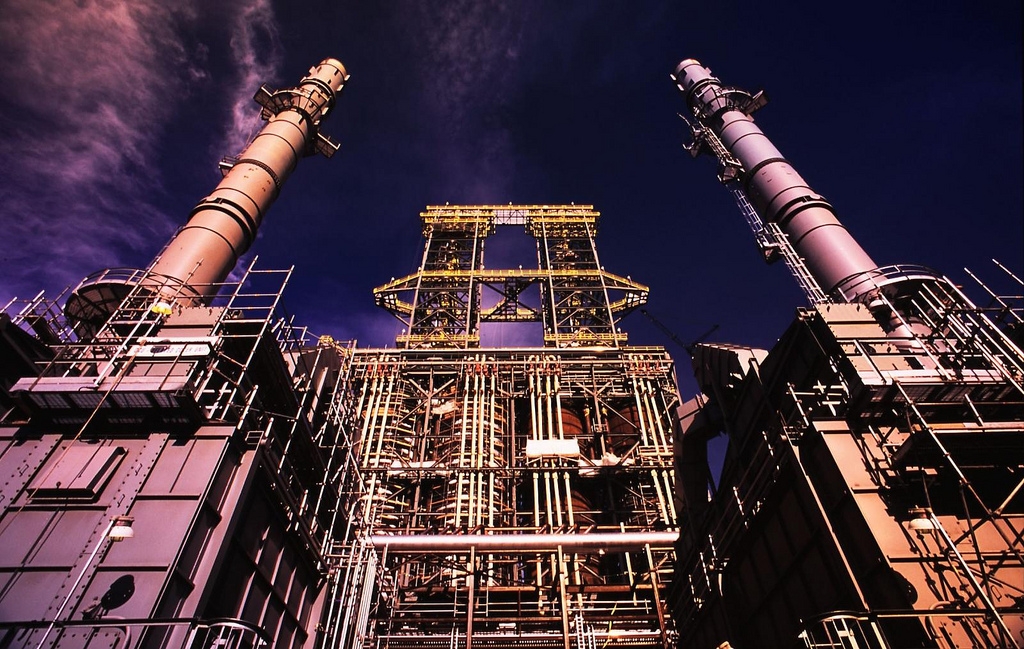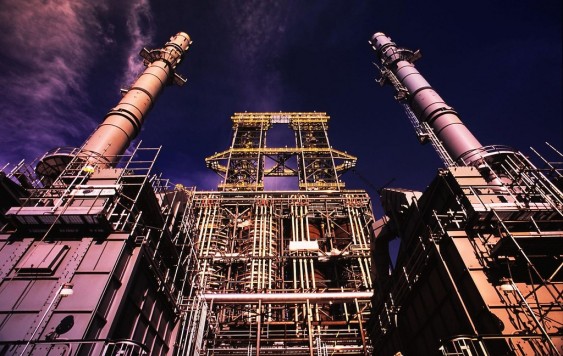You often hear it said that coal is the world’s dirtiest fuel, which isn’t quite right. There’s actually an even dirtier fuel out there, petroleum coke. Often called “petcoke,” it’s a dense coal-like and carbon-intense fuel that is the byproduct of refining certain kinds of oils. It figures into the Northwest’s fossil fuel debate in a way that links coal exports to the region’s changing oil supplies.
The clearest link is perhaps at Cherry Point in northwest Washington, where a large refinery owned by BP sits practically next door to the site of the proposed Gateway Pacific export terminal. Although Gateway Pacific is usually, and correctly, referred to as a coal export terminal, the site’s plans clearly call for handling petcoke in the initial phases of operations. (In fact, calcined petroleum coke is one of the non-coal “dry bulk commodities” the project supporters refer to when they are trying to draw attention away from coal.)
Conveniently, the BP refinery at Cherry Point annually produces 800,000 tons of calcined coke as a salable byproduct of its refining process. BP currently ships its petcoke out by rail to industrial users in North America and beyond, but having a petcoke-ready export terminal in the neighborhood would surely add a financial incentive for BP to dial up its petcoke production. The same goes for the Shell Refinery at Anacortes, Washington, which also produces petcoke that it now ships by rail to a smelter in Kitimat, British Columbia.
Dirty and carbon-heavy, petcoke is worrisome enough on its own. But encouraging petcoke exports adds another wrinkle because petcoke is a major byproduct of heavy Canadian crude oil and bitumen from the tar sands. In other words, encouraging petcoke is tantamount to encouraging using tar sands oil, the world’s most destructive and climate-damaging fuel, at Northwest refineries.
It is possible to imagine that coal export terminals would enable refineries to ship petcoke with enough ease and profit that they would begin using larger and larger volumes of tar sands oil. Right now, the tar sands reach Northwest refineries in limited quantity by way of British Columbia’s Trans Mountain Pipeline, which Kinder Morgan hopes to nearly triple in size. In the future, it could arrive in columns of oil trains.
The Northwest is facing down plans for huge coal export terminals, reckless schemes for pipeline expansions, and lately a blitzkrieg of crude oil-by-rail projects. It’s worth noting that these are not entirely separate debates—not by geography and not by fuel—and that the region’s energy future depends on understanding how closely they are connected.
Credit to Lovel Pratt who drew my attention to the petcoke story at Gateway Pacific.










Michael Riordan
What does it mean to “calcine” the coke? Can that be done with the petcoke residues from refining tar-sands oil, which have a lot of sulfur in them? Would help to know.
Water Dragon
‘Calcining’ is basically a superheated cooking process that dries the coke completely. Of note, BP says that their coke sales are the most profitable part of the Cherry Point refinery. They ship about two dozen train cars daily, worth about a quarter million $ each, of what is just a ‘waste’ product (like sulphur)! Look at the rail lines near the refinery…they’re covered in coke dust.
Michael Riordan
Thanks, Walter,
Next time I’m up there, I’ll take a look.
Terry Wechsler
Yes, GPT’s permit application makes clear that the only products that would be exported in the theoretical “Stage 2” are BP’s calcined coke and Canadian potash. The notion that the proposed coal terminals represent opportunities for expansion of “trade” in “Washington products” is patently absurd.
Jose
I think we should stop using gas, diesel and chemicals coming out of these refineries
– this will automatically shutdown the refineries and guess
no more dirty coke or coal?
Hey – we will have fresh air everywhere
Marc Boswell
Our company is looking for 100,000 tons of pet coke per month with a 1 year contract,We will need FOB &CIF prices It will be shipped to the East coast.